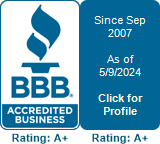Should You Have an Accountable Employee Reimbursement Plan?
- By Admin
- •
- 14 Apr, 2021
- •

Do you have an accountable plan for employee reimbursements? Accountable plans provide benefits both for the employer and its employees. But they require planning to set up and effort to maintain. Here's what you need to know about why you should make this effort and how to do so.
What Are Accountable Plans and Nonaccountable Plans?
Both accountable and nonaccountable plans refer to the means by which employees are reimbursed for expenses they incur on their employer's behalf. These expenses include things like buying last-minute office or job supplies, using personal vehicles for company business, paying for travel expenses, taking customers out for meals, or paying a fee for the company.
Accountable plans require that the employee submit receipts or another type of approved tracking method to account for all the money submitted for reimbursement. Nonaccountable plans do not require tracking. That money is usually given in the form of allowances - which the employee may or may not return a portion of - given either on a regular basis or per event.
How Do Accountable Plans Benefit Companies?
Accountable plans are extra work for the company, since staff must follow IRS rules and reconcile what was given out versus receipts. But the employer benefits because it discourages abuse of expense allowances. When employees must return receipts, they are more likely to use the money solely for what it was intended. This is a system of checks and balances that prevents misuse as well as errors.
In addition, the employer has a reliable written record of expenses. Ultimately, the company paid these expenses via the employee, so it is responsible for ensuring that they are properly categorized and fit all IRS rules to be deducted on income taxes. And customers can see where their money is going should the company ever need to justify its invoices.
Finally, accountable systems ensure that staff members are treated equally. When everyone from the CEO to accounting clerks must turn in receipts or track their mileage, everyone has the same experience. There is less resentment than there may be when unaccountable expense allowances are handed out only to some but not the vast majority.
How Do Accountable Plans Benefit Employees?
Employees also benefit from accountable plans because they reduce taxes. Under IRS rules, reimbursements through a nonaccountable plan are deemed taxable wages or salary for the employee. This is added to their Form W-2 each year and increases their tax bill. While the employee may have once been able to deduct their expenses to offset this, current tax law doesn't allow any deductions.
What Does an Accountable Plan Require?
If you want to set up an accountable plan, you will first need to understand what makes a plan accountable and therefore tax-free to employees. The rules can be somewhat complex, but they include the following major areas:
- The expense must be business-related and deductible by the employer. Partially personal expenses must be divided.
- The expense must be substantiated by the employee. This is generally done through receipts or logging.
- Excess money must be returned to the employer, usually between 30 and 120 days of receipt.
Some types of expenses, such as mileage or per diem, have their own unique rules and methods of tracking. Each employer would set up a personalized standard for these.
Where Can You Get Help?
Clearly, the benefits of accountable reimbursement plans are many. But your business must get the steps right in order to reap the rewards both for employees and the company.
Start by learning more about reimbursement plans in consultation with the accounting team at Williams & Associates Tax Services. We help our clients analyze their expenses and processes to find the best way to maximize profit and minimize paperwork. Call today to make an appointment.










